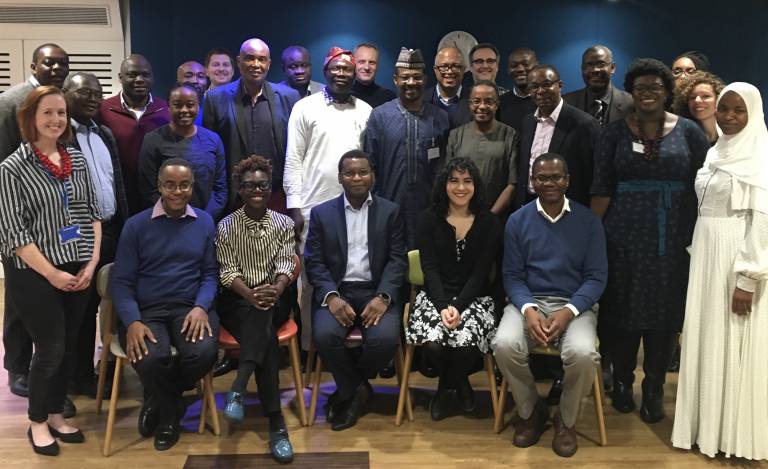The Lancet Nigeria Commission will provide analysis and a plan to inform the delivery of health goals for the next decade for Nigeria.
Project Summary
Nigeria is the most populous country and largest economy in Africa. Future population projections indicate that it will surpass the United States and become the third most populous country globally by 2050.
According to almost all metrics, Nigeria’s health outcomes has made little progress with declining investment in health. Despite these challenges, recent reforms, such as Primary-health-care-under-one-roof policy, new vaccines, the 2014 Health Act, and institutional changes at both federal and state levels, give reason for optimism.
In this context, the Lancet Nigeria Commission will provide analysis and a plan to inform the delivery of health goals for the next decade for Nigeria.
At present, there is no recent report that synthesizes the state of health in Nigeria. This landmark Commission will present a comprehensive and critical body of work and provide a framework to reset and shape Nigeria’s health agenda.
Our multidisciplinary group of Nigerian academics, orchestrated by UCL’s Institute for Global Health, is working in close collaboration with the heads of key Nigerian health agencies.
The report will combine strands of analysis on demographic dynamics, disease burden and future projections based on the best available data including from the Global Burden of Disease study, the Nigerian National Bureau of Statistics, and the Nigeria Centre for Disease Control. Equally as important will be our health systems and policy analysis, articulating key challenges and making specific recommendations and setting an agenda for action.
The evidence generated in this Commission will be utilized to influence the programme of work of the Nigerian government and its development partners. Central to our approach is the co-production of analysis with the policy community and decision-makers.
In addition to working directly with senior leaders in the health sector, a public engagement strategy will secure input into the content of the papers and approaches to dissemination.
By setting out the challenges, synthesizing the evidence base and identifying bold recommendations for action in collaboration with policy makers, the Lancet Nigeria Commission will contribute to sustainable change on health policy and programming, national health outcomes and global health goals.
Commissioners
Ibrahim Abubakar (UCL), Seye Abimbola (University of Sydney/BMJ Global Health), Aishatu Adamu (Wellcome KEMRI), Ifedayo Adetifa (LSHTM/Wellcome KEMRI), Adebowale Adeyemo (NIH Bethesda), Gambo Aliyu (NACA), Muktar Aliyu (Vanderbilt), Sani Aliyu (Consultant Physician, Addenbrooke’s Hospital), Emmanuel Ameh (Surgery, Abuja), Belinda Archibong (Columbia U), Tim Colbourn (UCL), Alex Ezeh (Professor, Drexel University), Chikwe Ihekweazu (NCDC), Zubairu Iliyasu (Bayero University), Diana Mabayoje (NHS, UCLH), Ebenezer Obadare (Kansas University), Stephen Obaro (UNMC), Folabi Ogunlesi (VESTA Healthcare), Iruka Okeke (UCH, Ibadan), Friday Okonofua (Ondo State University of Medical Science), Tolu Oni (University of Cambridge), Obinna Onwujekwe (University of Nigeria), Olu Onyimadu (SHTAC), Eme Owoaje (UCL Ibadan), Muhammad Ali Pate (Former Health Minister, World Bank/Harvard), Babatunde Salako (NIMR), Nasir Sambo (NHIS), Faisal Shuaib (NPHCDA).
 Close
Close


